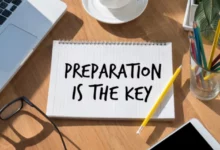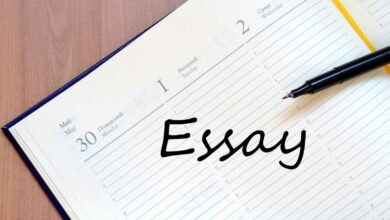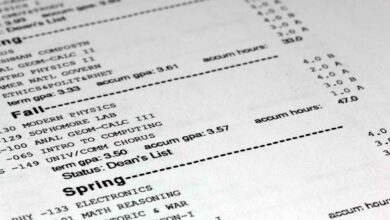How To Study Effectively: 12 Amazing Secrets For Ultimate Academic Success

Is your present study method going through a textbook repeatedly, hoping something will eventually stick? Do you often find yourself stressed out as you find it impossible to memorize such a vast quantity of information in a shorter period? Do you ever feel your study habits aren’t simply cutting it?
Most students realize their earlier study habits aren’t effective anymore as they move to higher classes. This is completely understandable. As you progress to further educational level, the professors become less involved, classes become bigger, exams are worth more, reading turns more intense, and classes become more rigorous. This doesn’t imply anything’s wrong with you; it just demonstrates you need to develop more effective study skills.
If you’re teetering on the edge of burnout in your academic journey, today’s comprehensive post will offer valuable insights. Here we will walk you through certain scientific proven study tips that will enable you to set yourself up for success from the very start.
1. Set A Schedule
Do you often say, ‘Oh, I’ll get to it soon?’ This isn’t a valid studying strategy. The reputed assignment maker worldwide suggest being intentional about planning set study sessions. Mark out chunks of time that you can devote to your studies on the calendar. Aim to schedule some study time each day. However, other commitments may also necessitate that certain sessions are longer than other classes.
2. Study In Manageable Blocks Of Time
One of the most common misconceptions is that you need to have long study sessions to cover a vast amount of the syllabus. This can be a hindrance to your brain’s ability to retain information. Instead, it is wise to separate your studying hours into small 20-30 minute sessions. This will help your brain retain a higher percentage of the information presented.
3. Conduct A Resource Reconnaissance
Sit down and make a detailed list of what you think will be on the next exam or quiz. Write down all the resources you have at your disposal that will enable you to learn the information, like taking a practice exam or joining a study group.
Look back on the previous quizzes. Some of the information is bound to come up again in exams.
Also Read: Careers Options To Consider As A Computer Engineer
4. Get In A Positive Mindset
A look at top essay and research paper help forums will help you understand that it is essential to be in a positive mindset when you sit down to study. If you become emotionally distracted, you will become less effective at learning and retaining information. Try to think positively while studying and do not compare yourself to others.
If you have negative thoughts like ‘I am going to fail the exam’, stop the thought immediately in its track. Replace it with a positive thought like ‘I’m going to grasp this material and succeed’.
5. Quiz Yourself Constantly
Use flashcards, mock quizzes, and practice exams to effectively learn the information. Taking a test will help you learn the information more remarkably than simple rereading the information. Try creating flashcards to quiz yourself. You can create a simple mock exam all by yourself by copying all of the questions from your previous quizzes and answering them. Consider taking a mock quiz or exam first. Ensure to focus more on the topics that you struggle with while studying.
6. Use As Many Senses As Possible
Mike Johnson, who often caters to requests like ‘Do my math homework’, strongly believes certain people retain information better if numerous senses are engaged in the study process. One of the best ways to include multiple senses while studying is by reading your notes aloud as you rewrite them. This brilliant approach uses countless senses and might help you retain information more effectively.
7. Play A Memory Game
Try using an acronym, a song, or a mnemonic device to help you remember information in excellent ways. For instance, if you need to memorize the notes of the treble scale EGBDF, then you can assign the letters a set of words or phrases that is easy to remember, like ‘every good boy does fine’.
However, remember memory games don’t work for everyone. If you find yourself striving to memorize information with the aid of this method, skip it.
8. Set Specific Objectives For Each Study Session
An easy way to ensure your shorter study sessions remain concise and effective is to have a specific study objective. Rather than overloading your brain with huge amounts of information, it is always better to focus on learning a specific concept. This will help you enhance retention and confidence in the specific subject.
9. Find Environments Where You Can Be Productive
To help with neural retention, it is always better to find your ‘special’ study space. Try to find a quiet space where you can be alone and concentrate on studying without distraction. Whether it’s a library, a coffee shop, your room, or elsewhere, keep track of which locations inspire the most productivity. Once you’re done establishing these locations as designated study spaces, your brain will register that it’s time to concentrate and become more receptive to new information.
10. Use Spaced Practice
Also popularly known as distributed practise, spaced practice encourages students to study over a longer duration instead of cramming the night before. When our brains almost forget something, they work hard to recall that information. Spacing out your studying sessions help you make connections between ideas and develop upon the knowledge that can be easily recalled later.
Like, once you learn the material in class, revisit and review it on the second day and third day. Again revisit and review after two weeks. However, to implement this, it’s essential to start planning early. Even if your exams are months away, this practice will help you hold yourself accountable.
11. Use Active Recall Method
This controversial method of studying was a hot topic in 2009. This was when a psychology professor published an article advising students against reading and rereading textbooks. Here he argued or merely led students to think they know the material better than they do since it is right in front of them. He then suggested students use active recall. In this method, they were supposed to close the book and recite everything they could remember up to a point to practice long-term memorization.
12. Know When To Call It A Day
Yes, it is possible to get too much of a good thing. Though your studies are significant, they shouldn’t be the only thing in your life. It’s also necessary to have a social life, get ample exercise, and take care of your non-school responsibilities.
Studies demonstrate that too much time with your nose in the books can greatly elevate your stress level. This can harm your school performance and your personal relationships.
Parting Advice
Knowing how to study effectively is a remarkable skill that will benefit you for life. Developing effective study skills require adequate time and patience. If you follow the tips mentioned above, you’ll be on your way to exploring which kind of study method works the best for you- so you can knock your next test out of the park. Good luck in all of your academic endeavours!











